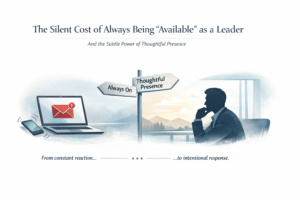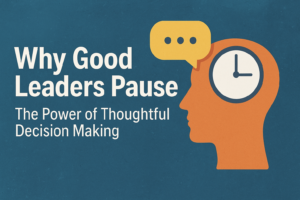While I have founded many successful ventures, one of the most passionate ones was founding Theorem in India. It was nothing short of a dream, driven by a clear vision and built against all odds. It wasn’t just building a business, it was building a culture, a campus, and a global delivery hub. I still remember those early days vividly, as if they happened just yesterday. And even today, when I look back, what stands out isn’t the position I once held, it’s the impact we created together, an impact that continues to resonate.
As the company grew and new dynamics came into play, I had reached a crossroad. I could have stayed and fought for control, or I could step away to preserve what mattered most to me then and still does today: my values, my integrity, and the joy of creation. I chose to let go!
Some were surprised that I could walk away without looking back. Even years later, when people express respect for that decision and what I had built, it means more than any title ever could, because it comes without expectation and from a place of genuine goodwill.
From Dream to Reality
When you start something from scratch, it’s difficult to imagine that one day you will be stepping away from it.
The deadlines that seem impossible, the late nights or rather early mornings, and even those moments filled with sheer doubt that were sometimes followed by breakthroughs. I smile as I remember those times because they are a part of my very identity. As a founder, I know that a company isn’t just an organization but it is a dream that was made tangible with the sweat and tears of many.
And yet, for many of us, there will come a time in life when we face what I will now call ‘The Founder’s Dilemma’. What is this dilemma? Well, it is knowing when to hold on and when to let go of something as a founder.
The Founder’s Control Paradox
If you look at start-ups, you know that during its early days, founders are often the very engine. Every hire, every decision, and every deal goes through the founder. The Founder is the brand. But as start-ups scale, so does the skills that are needed to lead change. What got you here as a founder might not really take the company further anymore. This is also when control tends to become a bottleneck.
What’s the paradox here? Well, the very traits that make a founder successful in the beginning including the deep involvement, personal touch, and relentless drive, now becomes liabilities if they do not adapt.
Letting Go Gracefully
Letting go is not the same as giving up. For many founders, the real challenge is recognizing when your greatest contribution is no longer in holding on to the same role. Some of us are fuelled by creation and we thrive on building, solving problems, and setting vision in motion. It’s not about clinging to a position or navigating the politics of power; it’s about making something meaningful come alive.
In leadership, I believe there are three kinds of people: creators, sustainers, and disruptors. I know I belong to the first group – creators. We see what doesn’t yet exist and will it into being. But creators eventually face a choice: stay and manage what has been built or move on and create again. Both paths are valid, but choosing well requires self-awareness. I chose to move on.
The true test of leadership isn’t how tightly you can hold on, but how gracefully you can let go when the time is right. For me, stepping away opened doors I hadn’t imagined – new projects, businesses, roles, even designing buildings from scratch. Each one brought back the same rush I felt in the early days: a blank canvas, fresh problems to solve, and a vision waiting to take shape. Some ventures succeed; some don’t…but the thrill of creation is always the same. In the end, respect that comes from titles fades the moment the title does. But respect that is built on integrity lasts long after you’ve moved on.
Finally…
The founder’s dilemma will come for most entrepreneurs at some point. I will not say that I never felt a tinge of sadness while stepping down from a position, a role or a business. But when you are in such a situation, ask yourself: Are you holding on to build something better or just for the sake of holding on?
Remember, sometimes, the most visionary act of leadership is to step away so the vision can live on without you.
What drives an entrepreneur beyond profit? I’ve shared my thoughts, and I’d love to hear yours. Send me a message on LinkedIn and let’s discuss it.



